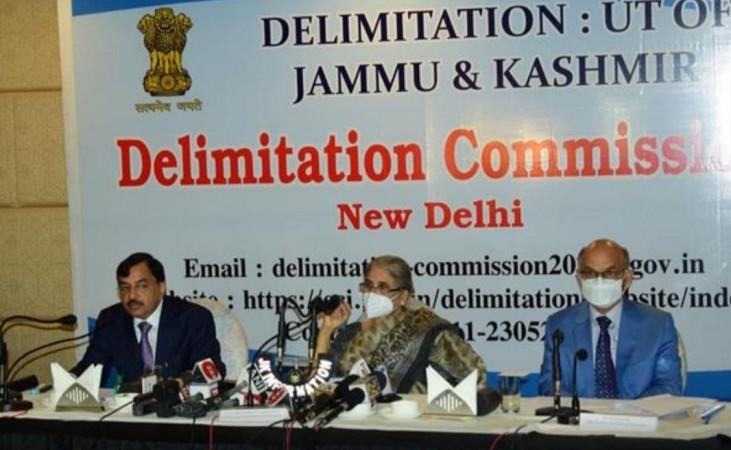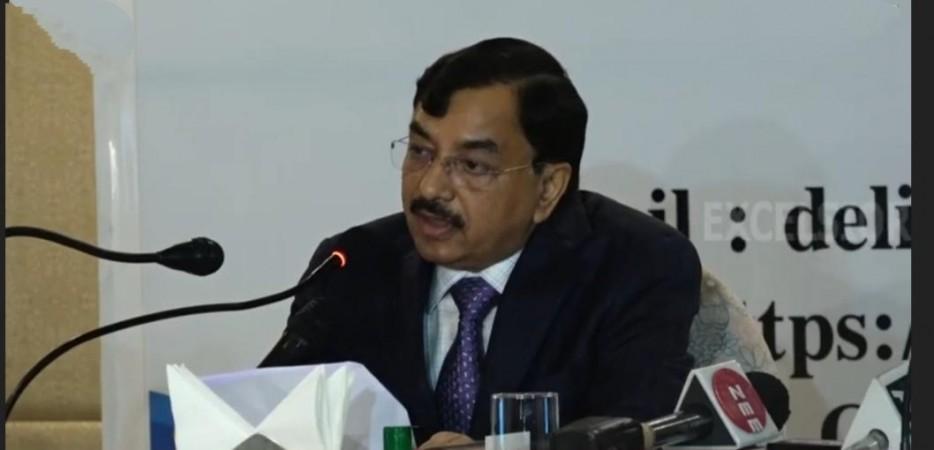After meeting over 290 groups during a four-day visit to Jammu and Kashmir to get feedback from grassroots, the Delimitation Commission on Friday said that this exercise of interaction will continue to meet many more people before putting the draft proposal in the public domain.
"This is our first visit to the Union Territory, and I assure you that it is not our last visit, we will have to come again to interact with many more people. It is a complex exercise and the commission will continue with this engagement. The Commission will take all necessary steps to continue this exercise," Justice (Retd) Ranjana Prakash Desai, chairperson of the panel told media before winding up their maiden visit to J&K.
Addressing a joint press conference with Chief Election Commissioners of India, Sushil Chandra and Chief Electoral Officer (CEO), J&K, KK Sharma, Justice Desai assured that the whole exercise is going to be transparent manner as per law.
When her attention was drawn towards the statement of PDP, Justice Desai said, "I don't think anybody should have any fear. We are confident that we will finish the task as per law in the most transparent manner, otherwise, we would not be coming and spending three-four days here and talking to so many people."

Announcing its decision not to meet the Delimitation Commission, PDP, on July 6, had described the whole exercise as "pre-planned" in favor of a particular party and "aimed to further hurt the interests of people of J&K".
In a first, Assembly seats will be reserved for Scheduled Tribes (STs) in J&K
Chief Election Commissioner of India Sushil Chandra said that due representation will be given to the people belonging to Scheduled Tribe and Scheduled Castes groups in the new assembly of J&K. He said that first-time seats will have to be provided to STs in the Assembly.
The J&K has a share of nearly 15 percent population of STs. As per the 2011 census total population of STs in J&K counted 14.9 lakh among them 13.2 lakh are Muslim, 1 lakh are Buddhist and about 67,000 Hindus.
After the bifurcation of the erstwhile state of J&K into two Union Territories (UTs), the majority of the Buddhist STs have gone to the UT of Ladakh.
2011 census to be base of delimitation
The panel said that delimitation will be conducted on the basis of the 2011 census and the final draft will be prepared after taking all demands and recommendations into account.
"The delimitation commission was constituted in the year 2020 to carry on the exercise on the basis of 2011 census as per section 62 of Jammu and Kashmir Reorganisation Act, 2019," Chandra said and added that associate members of the panel would also be taken on the board before making the draft.

"The draft will be put in the public domain to seek objections and comments from the people. Only after seeing all comments, the final draft will be prepared. Opportunity will be provided to the public at large to raise objections and only then things will be finalized," he said.
Chances of de-freezing 'reserved' for PoJK seats bleak
Chief Election Commissioner of India made it clear that 24 seats of the legislative assembly of UT of Jammu and Kashmir shall remain vacant and the said area shall be excluded in delimiting the territorial constituency as provided under part V of Jammu and Kashmir Reorganisation Act, 2019.
BJP and other refugee groups, during their interactions with the visiting panel, have demanded that at least eight of the total 24 seats reserved for the natives of Pakistan occupied Jammu and Kashmir (PoJK) should be de-freeze.
Panel to redraw parliament, assembly constituencies
The Delimitation Commission for Jammu and Kashmir was constituted by the Centre on March 6, 2020, to redraw Lok Sabha and assembly constituencies of the Union Territory in accordance with the provisions of the Jammu and Kashmir Reorganisation Act, 2019, which bifurcated the erstwhile state into union territories of J&K and Ladakh.
The elections to the Assembly of the Union Territory of Jammu and Kashmir will be held only after the process of delimitation is completed.

















